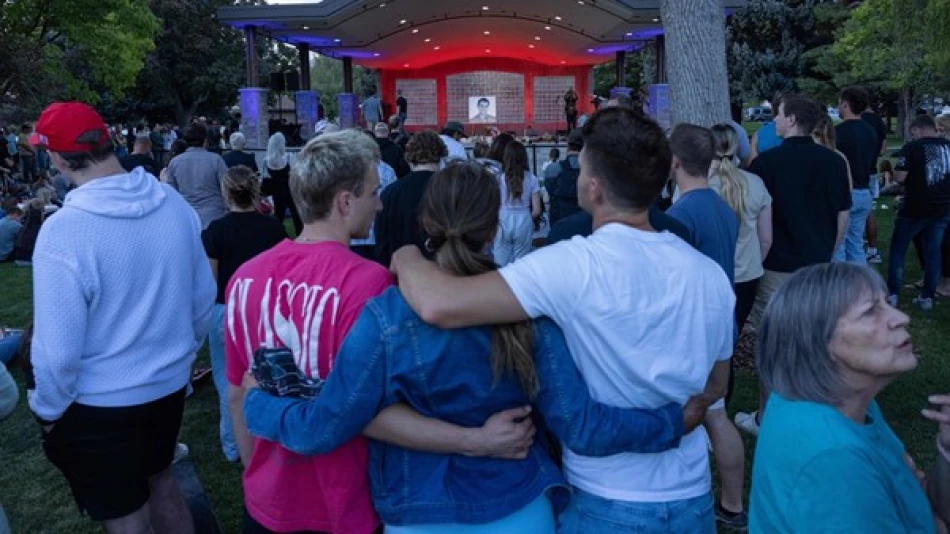
Shocking New Developments in the Assassination of Prominent Activist Charlie Kirk
Trump Announces Arrest of Suspect in Charlie Kirk Assassination Case
President Donald Trump announced Friday that authorities have arrested the suspect in the targeted killing of prominent conservative activist Charlie Kirk, ending a manhunt that gripped the nation after the shooting at a Utah university campus. The arrest comes as Trump calls for restraint among his supporters, emphasizing Kirk's commitment to non-violent advocacy.
Swift Resolution After Nationwide Search
Speaking to Fox News in a live interview, Trump revealed that the suspect was turned in by "someone very close to him," suggesting the investigation may have involved cooperation from within the suspect's inner circle. The arrest occurred after more than 24 hours of intensive searching by federal and local authorities.
The FBI had classified the Wednesday evening shooting as a "targeted attack," indicating this was not a random act of violence but a deliberate assassination of one of the conservative movement's most visible young leaders.
A Strategic Loss for Conservative Youth Movement
Kirk's death represents a significant blow to the organized conservative youth movement that has been instrumental in Trump's political success. As a leading figure mobilizing young Trump supporters, Kirk had built a substantial platform through campus events and digital outreach, often drawing both enthusiastic crowds and vocal opposition.
The 30-year-old activist was participating in a public debate at a Utah university when he was shot in the neck, dying from his injuries. These campus appearances had become Kirk's signature method of engaging directly with college students, often in politically charged environments.
Political Implications and Response Strategy
Trump's immediate call for non-violent responses suggests awareness of the potential for this assassination to inflame political tensions. By emphasizing that Kirk "fought for non-violence" and urging supporters to honor that legacy, the president appears to be attempting to prevent retaliatory actions that could escalate political violence.
This measured response contrasts with the more inflammatory rhetoric often seen in highly polarized political moments, potentially reflecting lessons learned from previous incidents where heated political discourse preceded violence.
Broader Context of Political Violence
The targeted killing of a prominent political figure represents an escalation in the political violence that has periodically emerged in American politics. Unlike random attacks or broader security threats, the FBI's determination that this was a targeted assassination places it in a more serious category of political crimes.
The quick resolution through the suspect's surrender via an associate may provide investigators with crucial insights into the motivations and any potential broader conspiracy behind the attack. Federal authorities will likely focus on determining whether the suspect acted alone or as part of a larger network.
Impact on Political Discourse
Kirk's assassination and the subsequent arrest will likely influence how political activists approach public engagement, particularly on college campuses where ideological divisions often run deep. The incident may prompt enhanced security measures for political figures who regularly appear in potentially hostile environments.
The case also tests the current administration's ability to manage political tensions while pursuing justice, as the investigation unfolds amid an already polarized political landscape.
Most Viewed News

 Layla Al Mansoori
Layla Al Mansoori






